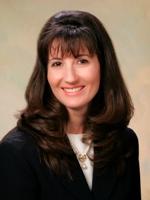W&M Elder Law Clinic: Training Students and Helping Seniors
Published in The Voice of Experience, Volume 24, Number 4, 2013. © 2013 by the American Bar Association. Reproduced with permission. All rights reserved. This information or any portion thereof may not be copied or disseminated in any form or by any means or stored in an electronic database or retrieval system without the express written consent of the American Bar Association. The author, John Hardin (Jack) Young, is counsel to Sandler, Reiff, Young & Lamb in Washington, D.C., and is co-chair of the Pro Bono and Public Service Committee of the ABA's Senior Lawyers Division.
The William & Mary Law School recently established an Elder Law Clinic. Located in the Law School, the Clinic provides services to aging clients in Williamsburg, Virginia, and surrounding communities. It helps those who cannot otherwise afford legal assistance and who have concerns regarding Medicaid, disability, guardianship, abuse, estate planning, and other matters that can be overwhelming and confusing to older people and their families. The Clinic is directed by Managing Attorney Helena Mock, a William & Mary Law School graduate.
I had a chance to catch-up with Helena and ask questions about the Clinic. Here are her insightful responses.
Jack: What led you to start the Elder Law Clinic?
Helena: There is a very definite need in our community, but there are not enough qualified elder law attorneys. And, in the next few years, the demand will only increase. The purpose of the Elder Law Clinic is not only to provide assistance to seniors, but also inform and train law students about this important area of law in the hopes of motivating and encouraging more of them to go into the field of elder law.
Jack: How many law school students do you anticipate working with the Clinic?
Helena: We anticipate that the clinic will run in both fall and spring semesters. As things progress, we may add a summer session. I have eight students each semester. We may increase this to 10 next year, but since we only have one attorney supervising all of the cases (and each student team will have approximately four to five cases at any given time), we will eventually reach maximum capacity.
Jack: What services will be provided?
Helena: The Clinic will provide basic estate planning (wills, powers of attorney, and medical directives) and handle guardianship/conservatorshlp actions, elder abuse and consumer protection cases, Medicare and social security questions, Medicaid and VA Pension Benefit applications, simple estate administrations, and nursing home and senior housing issues.
Jack: Why is the Clinic important to seniors and the community?
Helena: There is a misconception that all Williamsburg residents are affluent. We have countless seniors in our community who are struggling. Additionally, in Virginia our laws are not designed to protect seniors. Numerous organizations exist to help seniors with a variety of issues, such as housing, food service, health care, and consumer issues, but seniors face very unique legal issues as well. Although members of the Williamsburg Bar Association are very giving with their time and services through our Legal Aid Clinic, more help is needed. Additionally, there is a shortage of attorneys specializing in elder law issues. As the senior population increases, there will be more people in need. The Elder Law Clinic was established to provide meaningful assistance to seniors while also providing training to law students in the hopes of increasing the number of practicing attorneys with the experience, knowledge, and desire to meet seniors' unique legal needs.
Jack: Are there similar programs at other law schools?
Helena: Yes, several other law schools have developed elder law clinics. Many have been in existence for a long time. Some are associated with a local medical school, and law students and medical students work collaboratively on solving elder issues. In my research for the William & Mary Clinic, I discovered that each clinic sets its own focus areas and establishes its own criteria for qualification for services.
Jack: How can senior lawyers and lawyers who provide elder law services help the Clinic?
Helena: We are always looking for experienced attorneys who are willing to assist the Clinic by participating in workshops or drafting sessions. We are also developing a list of qualified attorneys in the area who can assist with cases the Clinic cannot accept, either because the potential client does not meet our income/asset requirements or because we are full. I do anticipate that once the word gets out about what we are doing, we will have more work than we can handle.
For more information about the William & Mary Law School Elder Law Clinic, you can reach Helena at [[w|elderlaw]].
Editor's note: The Elder Law Clinic was established with an initial grant from the Beazley Foundation.